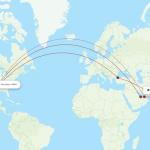Discover The Hidden Gem: Unveiling Europe’s Cheapest Place To Rent – Explore Now!
Cheapest Places to Rent in Europe: Your Ultimate Guide
Introduction
Hello Shopper,
1 Picture Gallery: Discover The Hidden Gem: Unveiling Europe’s Cheapest Place To Rent – Explore Now!

Welcome to our comprehensive guide on the cheapest places to rent in Europe! As a shopping lover, we understand that finding affordable accommodation plays a crucial role in planning your trip. In this article, we will provide you with all the necessary information to help you find the best and most budget-friendly destinations to rent in Europe. Whether you’re looking for a city apartment or a cozy countryside cottage, we’ve got you covered. Let’s dive in!
Table: Cheapest Places to Rent in Europe

Image Source: redd.it
Destination
Average Monthly Rent
Cost of Living Index
Popular Attractions
Prague, Czech Republic
$600
40
Prague Castle, Charles Bridge, Old Town Square
Warsaw, Poland
$700
42
Royal Castle, Old Town Market Square, Lazienki Park
Budapest, Hungary
$550
38
Buda Castle, Hungarian Parliament Building, Széchenyi Thermal Bath
Lisbon, Portugal
$800
45
Belém Tower, Jerónimos Monastery, Alfama District
Belgrade, Serbia
$400
35
Belgrade Fortress, Kalemegdan Park, Skadarlija
What Makes a Place Cheap to Rent?
✨ Before diving into the details, let’s explore what factors contribute to a place being affordable to rent in Europe. Several factors determine the cost of rent, including the country’s economic situation, the city’s popularity, and the local cost of living. Additionally, the availability of rental properties, the number of rooms, and the location within the city can significantly impact rental prices.
Who Should Consider Renting in Europe?
🌍 Renting in Europe is suitable for various individuals, including students, digital nomads, retirees, and even families looking to experience a different culture. Whether you’re planning a short-term stay or a long-term relocation, renting can be a cost-effective and flexible option compared to hotel stays or property purchases.
When Is the Best Time to Rent in Europe?
⏰ The best time to rent in Europe is typically during the off-peak season, which varies depending on the destination. Tourist hotspots are generally more expensive during peak travel seasons, such as summer or major holidays. By choosing to rent during the shoulder seasons or offseason, you can often find better deals and negotiate lower prices.
Where Can You Find the Cheapest Rentals in Europe?
📍 Europe offers a wide range of affordable rental destinations. Some of the cheapest places to rent include Prague in the Czech Republic, Warsaw in Poland, Budapest in Hungary, Lisbon in Portugal, and Belgrade in Serbia. These cities provide a perfect balance of affordability, vibrant culture, and stunning attractions.
Why Choose the Cheapest Places to Rent in Europe?
🌟 Opting for the cheapest places to rent in Europe allows you to stretch your budget further and enjoy more of what each destination has to offer. By saving on accommodation costs, you can allocate your funds to explore local cuisines, visit attractions, or indulge in shopping sprees. Additionally, staying in budget-friendly areas often provides a more authentic and immersive experience.
How Can You Find Affordable Rentals in Europe?
🔎 Here are some tips to help you find affordable rentals in Europe:
1. Utilize Online Rental Platforms: Websites like Airbnb, Booking.com, and HomeAway offer a wide range of rental options at various price points.
2. Consider Shared Accommodation: Renting a room or sharing an apartment with others can significantly reduce costs.
3. Explore Local Real Estate Agencies: Local real estate agencies may have exclusive listings and better deals for long-term rentals.
4. Research the Neighborhood: Different neighborhoods within a city may have varying rental prices. Look for up-and-coming areas that offer affordable living.
5. Negotiate and Compare Prices: Don’t hesitate to negotiate rental prices, especially for long-term stays. Compare prices between different properties to ensure you’re getting the best deal.
Advantages and Disadvantages of Renting in Europe
Advantages:
1. Flexibility: Renting allows you to easily move between cities or countries without the commitment of property ownership.
2. Affordability: Renting is often cheaper than buying property, especially in popular European cities.
3. Maintenance and Repairs: As a renter, you are typically not responsible for major maintenance or repair costs.
4. Access to Amenities: Rental properties are often located in convenient areas with access to amenities like shops, restaurants, and public transportation.
5. Cultural Immersion: Renting in local neighborhoods provides an opportunity to immerse yourself in the local culture and lifestyle.
Disadvantages:
1. Lack of Long-Term Stability: Renting may not provide the same long-term stability as owning a property.
2. Limited Control: As a renter, you may have restrictions on making changes to the property or have limited control over certain aspects.
3. Potential Rent Increases: Landlords may increase the rent periodically, affecting your budget.
4. Deposit Requirements: Rental agreements often require a security deposit, which can tie up your funds temporarily.
5. Limited Personalization: Renting may restrict your ability to personalize the space to your liking.
Frequently Asked Questions (FAQs)
Q: Is it possible to find pet-friendly rentals in Europe?
A: Yes, many landlords in Europe allow pets in their rental properties. It’s essential to inquire about pet policies and any additional fees.
Q: Are utilities usually included in rental prices?
A: It depends on the rental agreement. Some rentals may include utilities, while others may require tenants to cover the costs separately.
Q: Can foreigners rent properties in Europe?
A: Yes, foreigners can rent properties in Europe. However, it’s essential to familiarize yourself with the local rental laws and requirements.
Q: What documents are usually required to rent in Europe?
A: Common documents include a valid passport, proof of income, and a reference from a previous landlord.
Q: Are short-term rentals available in Europe?
A: Yes, short-term rentals are widely available in Europe, especially in popular tourist destinations.
Conclusion
In conclusion, the cheapest places to rent in Europe offer incredible value for money while allowing you to explore the beauty and culture of the continent. By considering factors such as location, cost of living, and popular attractions, you can find the perfect rental that suits your budget and preferences. Remember to utilize online platforms, research neighborhoods, and negotiate rental prices to make the most of your European adventure. Happy renting!
Final Remarks
Disclaimer: The information provided in this article is for general informational purposes only. Prices and availability may vary, and it’s advisable to conduct thorough research and seek professional advice before making any rental agreements. Happy travels!
This post topic: Shopping


